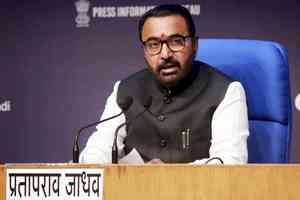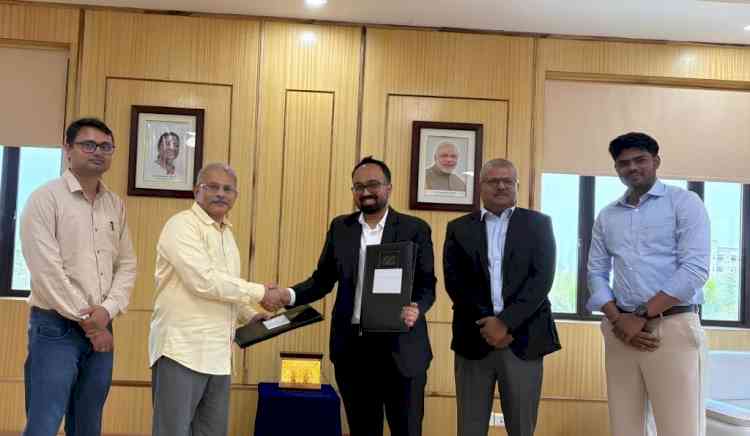UPI transactions witnesses 650 per cent rise at semi-urban and rural stores: PayNearby
PayNearby releases detailed analysis on ‘assisted financial transactions’, in its second edition of Pan-India report titled Retail-O-Nomics

Bangalore, December 6, 2022: PayNearby, India’s largest branchless banking and digital network, today said that there was a growth of 25% and 14% in value and volume respectively, in assisted financial transactions across semi-urban and rural retail counters in India in 2022. This indicates a behavioural shift in consumers in these regions, with more citizens adopting assisted digital means for their banking and lifestyle requirements and getting incorporated into the formal economy.
The growth figures have been observed across different product offerings of PayNearby, including Unified Payments Interface (UPI), cash withdrawal, MSME credit, utility payment, cash management, assisted e-commerce and more. They were availed by citizens through local retail counters like kirana stores, mobile recharge stores, medical shops, customer service points (CSPs), travel agents, etc.
As per the report, Unified Payments Interface (UPI) transactions saw a whopping 650% and 500% increase in value and volume across PayNearby retail counters, representing the growing adoption of UPI beyond Tier II regions in the country. This also highlights the pivotal role UPI can play in promoting digital financial inclusion.
The insight was shared as part of the second edition of the pan-India report titled ‘Retail-O-Nomics’, released by PayNearby. The report has been prepared basis transactions across a million plus retail touchpoints throughout the country. The findings of the report are based on business data collected for a comparison period, ranging from January to October 2022 vis-à-vis the same period during 2021.
In a key insight, the report states that the mPOS business has seen more than 100% growth, along with over 25% increase in demand for micro ATMs and mPOS instruments. The upswing in demand for digital payment options at retail outlets underlines the critical role played by small retail stores in bridging the infrastructure gap and driving financial inclusion at the last mile.
Cash withdrawal business through micro ATMs and AePS, which continues to be one of the major income drivers for semi urban and rural digital counters, has seen an overall growth of 8% in value and 9% in volume respectively. Cash withdrawals through micro ATM has witnessed a 25% increase in value and 28% increase in volume as compared to the same period last year. This growth figure shows the growing role played by this portable digital device in ensuring easy accessibility of bank accounts, while helping merchants use cash-at-store more effectively and augment their income. However, there has been a slight dip in the average cash withdrawal per transaction from INR 2620 in 2021 to INR 2595 in 2022.
As per the report, semi urban and rural India were an equal participant to this double-digit growth in assisted financial transactions, and the rate of adoption was comparable between urban and rural underserved demographics.
The report also indicates a sharp growth of over 200% in the cash collection business (including EMIs) with a monthly average of INR 1400 crores, indicating demand for lending and other financing solutions, bouncing back to the pre-pandemic levels. Increased demand was witnessed across most cash collection processes, including collection from logistics and ecommerce companies, which saw a leap of over 89% in volumes. Insurance premiums at retail stores, too, saw a massive 370% in growth and 365% increase in customers during the survey time-period.
Commenting on the report findings, Anand Kumar Bajaj, Founder, MD & CEO, PayNearby, said, “The findings in the report are inspiring and emphasise the fact that Bharat is gearing to walk hand-in-hand with India. Bharat is aspirational, and the increased offtake of green shoot services like assisted commerce, OTT subscription, micro-lending validates our commitment to make these services easily available at a store nearby.
We have serviced close to INR 70,000 crores of digital services in the first 10 months of this calendar year and the steady growth of cash withdrawal business, together with the fast track adoption of some of these green shoot services indicate a steady recovery of our economy post the devastating impact of the pandemic. We will continue to strengthen our efforts to simplify high end technology, so that most services can be democratised and made available to all through our well entrenched Distribution-as-a-Service network.
It is also heartening to see an accelerated demand within the retail community to make assisted financial transactions available at a store nearby. This is not only a great income generator for the merchant, but also helps build the nation grounds up and bridge the gap between Bharat and India. PayNearby, Zidd Aage Badhne Ki.”
Subscription-based digital services, such as OTTs, online education, online gaming have also seen positive growth. Even though the numbers are small, it validates a latent demand for such services and the growing affinity of digital products in a post pandemic Bharat.
The bill payments service at local stores witnessed an increase of 12% in value and 10% in volume. Mobile recharges grew by 18% over last year. Travel bookings saw a rise of 8% in flight and 6% in rail bookings this festival season, compared to the same period last year, driven largely by visiting friends and family, traveling to their natives for the festival. The report also highlights an 88% uptick in Pan Card issuance quarter on quarter. All of these indicate that the local kirana store has evolved into a multi-utility point for consumers for meeting most of their financial and digital needs.
Micro-credit for MSMEs, also saw a growth of 263% during this period; indicating a huge latent demand for viable credit in this segment that needs to be addressed for India to transition to the next stage of development.
In another interesting observation, around 32% of the banking transactions were registered during the non-banking hours between 6.00 pm to 12.00 am. This underlines the crucial role retail outlets play in serving the masses with their banking and digital needs.


 IANS
IANS 









